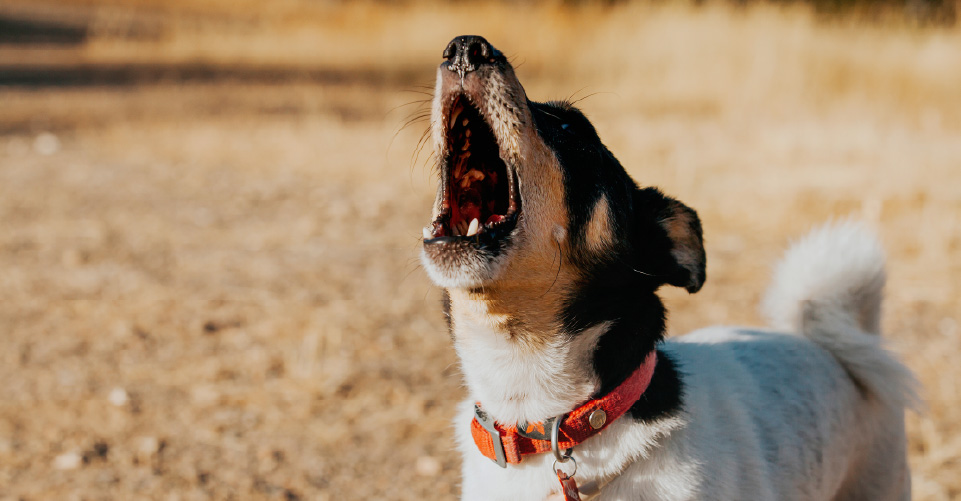Is removing your pet's vocal cords legal and humane?
Dr Trudie Prinsloo is a qualified veterinarian and attorney. In 2015, she started Legal Vet Services to provide legal advice to the animal health and veterinary industries in South Africa and now she has teamed up with us to tell us more about the South African laws relating to the removal of dogs’ vocal cords.
Is Vocal Cord Removal for Excessive Barking Still Acceptable?
Excessive barking by dogs is a real and often very difficult problem to deal with, which is why I have written about it on more than one occasion in the past. Is vocal cord removal (also called debarking or ventriculi cordectomy) an acceptable method to deal with this problem?
In my opinion, the answer is a huge “NO!” However, before I explain my view, I want to acknowledge that vocal cord removal is a procedure that is still accepted and done in many parts of the world, including South Africa. But there is increasing evidence against the use of this procedure and more and more people agree that it should not be done.
Dogs bark excessively because there is something that causes them to bark. It may be separation anxiety, it may be boredom, fear, or someone or something that is upsetting the dog. One of the main reasons people have dogs is for them to act as a warning system to alert us when there is a problem. Barking is a dog's main way of communication. Taking away the dog's ability to bark, is taking away its main method of communicating. It does not solve the underlying problem! Imagine taking a child’s voice away because you think the child is too noisy! Or how would you feel if someone permanently silences you because they think you talk too much or too loudly?
Furthermore, the procedure itself is an invasive surgery that needs to be done under general anaesthesia with several potential complications. Here are some of the things that can go wrong:
- Since it requires anaesthesia, it always comes with a risk of complications and potential anaesthetic death. Proponents of vocal cord removal will argue that this is true for all surgeries, which is, of course, correct. And that is the very reason to avoid unnecessary surgery. Especially a surgery that does not solve the actual problem.
- The surgery carries a risk of excessive bleeding, which could also lead to the death of the patient.
- The surgery is done in an area that cannot be kept completely sterile, and there is a significant risk of post-operative infection.
- Scar tissue may form post-surgically (laryngeal web) that can cause obstruction of airflow and difficulty breathing. This will require corrective surgery and it can be life-threatening if not corrected.
- Vocal cord removal and the dog’s inability to communicate can exacerbate the dog's stress levels. People in favour of this procedure argue that this is not true. However, there is scientific proof that the cortisol levels of dogs that had undergone a ventriculi cordectomy has increased.
- In most cases, the noise level is only reduced and not eliminated. Some dogs learn to bark again, often with a very strange-sounding voice.
Thus overall, the risk-benefit is completely skewed, with the risks far outweighing any potential benefits gained from the surgery.
But are there any legal implications or can vocal cords be removed without legal consequences? The first place to search for an answer dealing with animal welfare is the Animals Protection Act, No. 71 of 1962. Section 2 of this Act sets out all the potential offences that can be committed concerning animals and which are punishable under the Act. The very first offence set out in Section 2 is:
“(1) Any person who
(a) overloads, overdrives, overrides, illtreats, neglects, infuriates, tortures, or maims or cruelly beats, kicks, goads or terrifies any animal;” [my emphasis].
The word that stands out and is relevant to a ventriculi cordectomy is “maims”. The Oxford Advance Learner’s Dictionary defines maim as: “to wound or injure somebody so that part of the body is permanently damaged or lost.” This is exactly the effect that a ventriculi cordectomy has on the animal. I am therefore of the opinion that it is an offence in terms of this Act to perform a ventriculi cordectomy. However, it has not been applied in this manner to date, and it has not been tested in a court of law.
The South African Veterinary Council through its “Code of Conduct” provides guidance to veterinarians regarding their professional conduct. The following is stated about ventriculi cordectomies:
- It may only be done by a registered veterinarian under general anaesthesia and with proper analgesia.
- It must be discouraged and may only be done if all reasonable alternatives have been unsuccessful, and the owner is considering euthanizing the dog.
- Veterinarians must also inform owners that the noise levels may only be reduced and that there may still be some noise generated by the dog.
The procedure is therefore still done and accepted by some people in South Africa. However, in my opinion, it should not be done at all, and alternative measures must be pursued until the problem has been resolved.
dotsure.co.za is not responsible or liable for any advice, opinions, or any other information provided herein.



